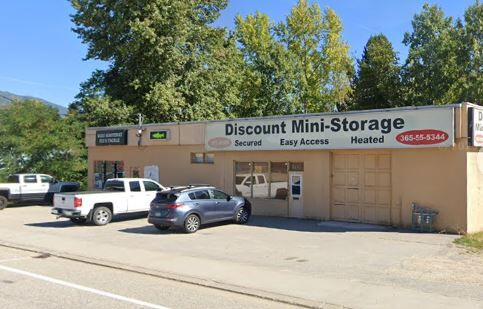Castlegar’s new permanent homeless shelter at 2245 6th Avenue has been given the green light to move forward, but its completion timeline and the services it will offer has raised concerns among city councillors.
During the February 18 city council meeting, the city approved BC Housing’s Temporary Use Permit request for the project.
The completed project will provide up to 20 shelter spaces for people experiencing homelessness, along with 24/7, year-round services, including meals, laundry, and washroom facilities.
Originally announced in June 2024, the shelter was expected to open in early 2025.
However, BC Housing spokesperson Kenneth Scott told council on February 3 that the facility is unlikely to be operational before November, at the earliest.
“The design work is done. The contractor is engaged. We expect renovations to last several months,” said Scott. “We should be open and ready to go before next winter. Ideally, we’ll be operational in the fall.”
This timeline did not sit well with city councillors, particularly given that provincial funding for temporary emergency shelters ends annually on March 31, leaving a seven month gap in services before the permanent shelter opens.
“From March 31, what happens to all those people until the new place opens? That’s a long stretch of time where they won’t have anywhere to go,” said Councillor Cherryl MacLeod.
“You can’t make a statement as an organization that we need these services 24 hours a day, 365 days a year, and then leave us with a gap from the end of March until whenever the new space opens,” she added.
Castlegar’s Out of The Cold Winter Homeless Shelter, located at 1660 Columbia Ave, operates 24/7 during the winter months and provides emergency overnight shelter to 10 individuals.
BC Housing provides municipalities across the province with funding for emergency weather response shelters, but that funding expires every year on March 31.
Scott acknowledged the service gap but said Castlegar is fortunate to have a permanent shelter on the horizon, as many B.C. communities face similar challenges.
“Any community with that type of shelter will see services end in March,” he said.
“There will be a period where there is no shelter in the community. Unfortunately, Castlegar has already worked with service providers and other stakeholders through past summers without a shelter, and we expect to be engaged in a similar process during this gap.”
Mayor Maria McFaddin asked why BC Housing can’t start its funding of the permanent shelter early to avoid the seven-month gap in service.
“I get that it’s only a temporary shelter that closes in March, but the logic doesn’t make sense. You’re saying we need the service, so why would you just not start the funding early and move it over to the new site when you get the new site?” said McFaddin.
“It seems really counterintuitive to close the one that’s functioning for a few months just because it’s different funding streams and their contracts are a bit different.”
Scott says BC Housing “recognizes that there will be a gap in the summer” and assured council that there will be conversations in the coming months on funding streams to help fill in service gaps, although he couldn’t commit to anything.
“We’re still at the table, and we can continue to have a conversation about the funding for that gap. Nobody wants to see that happen, including BC Housing. We’ve seen it in the community before, where we didn’t have shelter services and there was an obvious need. We are working in lots of communities with that issue, and we’re trying to resolve it as best as we can.”
Overdose prevention services
The shelter will include overdose prevention services, with a designated room monitored by staff for safe substance use, along with harm reduction supplies.
However, these services have raised concerns for Councillor Shiley Falstead, who asked on February 18 if council could amend BC Housing’s permit application to exclude them.
“It isn’t a treatment centre, and it isn’t a detox centre. It seems to me as if it’s a full-service addiction centre, where you have a bed, food, a place to inject, and someone to look after you. And I don’t think that’s what I want in my community. Is it possible that we can have a change?”
Falstead says the city doesn’t have enough support for those struggling with substance abuse and fears it’s unprepared to handle the implications of such a service.
“We’re going to have a full-support addiction centre, and we don’t have a hospital, we don’t have housing, we don’t have those wraparound services, and so I don’t think we’re ready for that.”
However, BC Housing spokesperson Tyler Baker argues that not offering overdose prevention services would make the shelter more challenging to manage and could push people to use drugs in private.
“It would be very challenging to provide shelter services without that harm reduction approach. Not offering these harm reduction services on-site isn’t going to stop people from using drugs.
It’s just going to push them off-site into the community, and we’ll see the impacts of that in the neighborhood. The RCMP, by-law officers, and all first responders will notice it. It makes it much harder to manage a shelter where people aren’t using on-site.”
Baker added that the services also allow staff to connect with individuals and direct them to health and recovery resources.
All of BC Housing’s permanent homeless shelters in the province offer overdose prevention services, and Baker says the city could lose funding for the shelter if the permit application includes such restrictions.
Council approved the temporary use permit request, with Councillor Falstead voting against it, on the record.
Be the first to know! Don’t miss out on breaking news and daily updates in your area. Sign up to MyKootenayNowNews Alerts.




